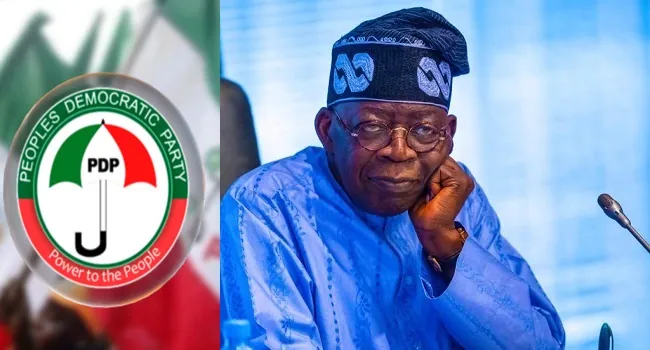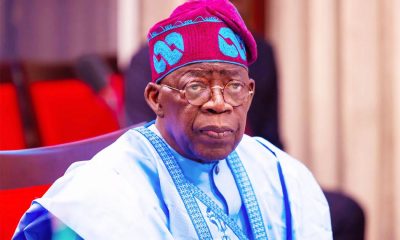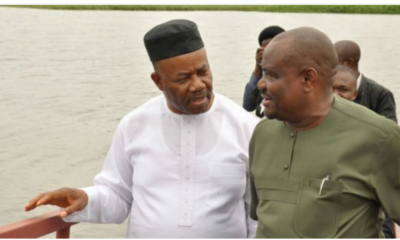Opinion
2027: Is PDP A Real Threat To Tinubu?
By Benjamin Abioye

As Nigeria approaches another crucial election cycle in 2027, a quiet but consequential drama is unfolding within the People’s Democratic Party (PDP)—one that could shape the future of democratic contest and opposition strength in the country. With whispers of coalitions, internal disagreements, and overtures across party lines, the central question remains: is the PDP in any position to unseat President Bola Tinubu?
Despite a historic legacy and nationwide presence, the PDP is currently facing a deepening identity crisis. Recent efforts by some of its governors to align with other opposition leaders—most notably Labour Party’s Peter Obi and elements within the NNPP—suggest an emerging strategy to build a united front. However, the absence of full party consensus is raising doubts about the effectiveness and sincerity of such a move.
Reports from a recent meeting in Bauchi between PDP governors and opposition figures indicated an intention to build a strong alliance capable of contesting the grip of the All Progressives Congress (APC) in the next presidential election. While the idea of a “grand opposition coalition” is not new in Nigeria’s political landscape, the challenge lies in its execution—and more importantly, in unified intent.
Not all PDP governors are aligned with this approach. Some have remained notably silent, while others, like Governor Umo Eno of Akwa Ibom, have publicly expressed their support for President Tinubu’s government. Eno’s commitment to “working with the federal government” for the sake of development has been seen by many as a quiet endorsement of Tinubu’s leadership—one that undermines any real threat from the PDP as a whole.
This growing internal divergence is not new. For years, Nyesom Wike, now Minister of the Federal Capital Territory, has walked a political tightrope—still officially a PDP member, yet vocally aligned with Tinubu and the APC on various fronts. His recent confidence and prominence within the ruling government only deepen suspicions of a weakening PDP spine. How long can a party tolerate this kind of dual allegiance without consequence?
Moreover, former Vice President Atiku Abubakar, the PDP’s perennial candidate and de facto leader of the party’s national opposition vision, appears increasingly isolated. His political future remains uncertain as reports emerge of some PDP governors allegedly urging him to step aside for a new opposition alliance—possibly fronted by a different presidential pairing.
Adding to this weakening state is the steady defection of influential PDP politicians across the country into the APC. In recent months, several powerful figures with large grassroots support in their states—ranging from former governors, sitting legislators, and political heavyweights—have dumped the PDP for the ruling party. These movements are not just symbolic; they shift the voter base and reduce the PDP’s on-the-ground mobilization strength in key battlegrounds.
All these developments lead to a broader concern: is the PDP still a cohesive and credible platform capable of challenging APC dominance? Or is it slowly unraveling into a fragmented shell of former glory, unable to decide whether to confront power or conform to it?
Tinubu, for his part, seems largely unbothered. With visible cracks in the opposition and some of their most influential figures either defecting or cooperating with his administration, the path to 2027 may be less contentious than it appears on the surface.
But democracy thrives on strong opposition. A divided PDP—and a disorganized coalition—may ultimately pose no real challenge to Tinubu’s re-election bid. If the party continues down this uncertain path, Nigerians might witness not a competitive race in 2027, but a quiet confirmation of the status quo.
And perhaps, it is worth recalling the biblical principle that “a house divided against itself cannot stand.” As internal rifts deepen and loyalties drift, the PDP must ask itself whether it is building towards power—or slowly tearing itself apart from within.
The question now isn’t just whether Tinubu can be removed. The real question is: who is truly prepared to do the removing—and do they even exist yet?
Send Us A Press Statement Advertise With Us Contact Us
And For More Nigerian News Visit GWG.NG













